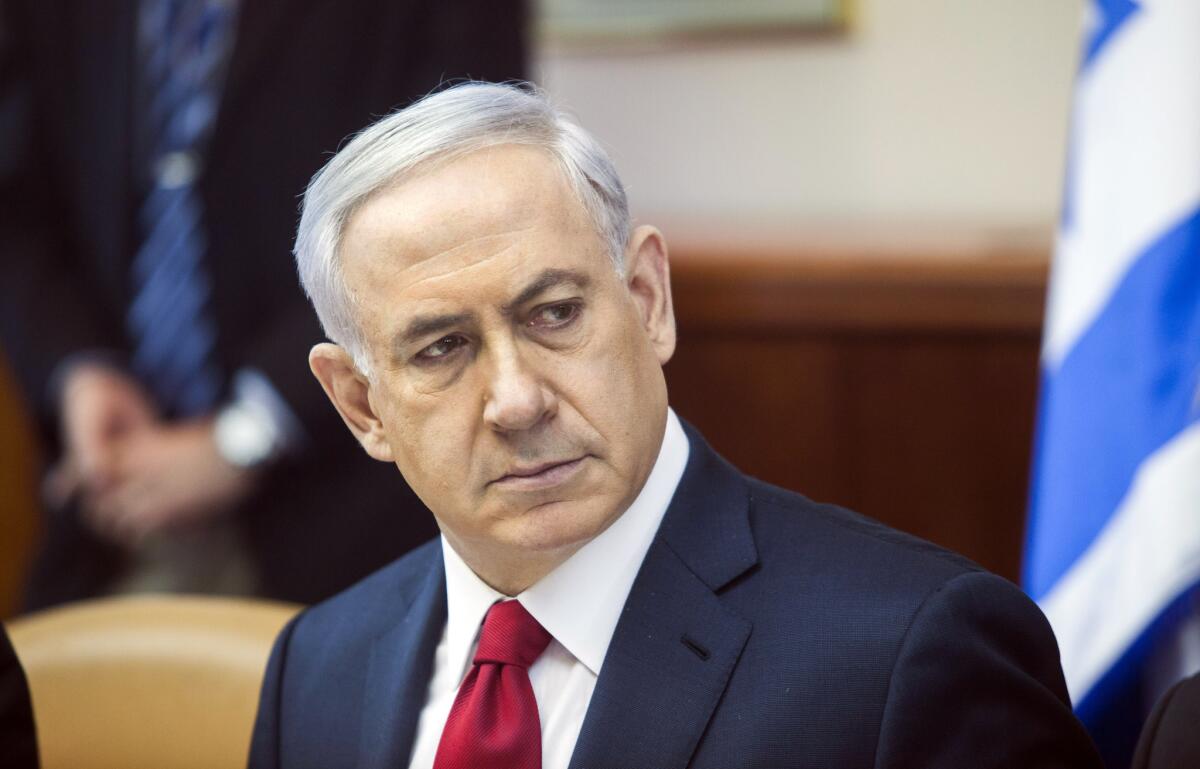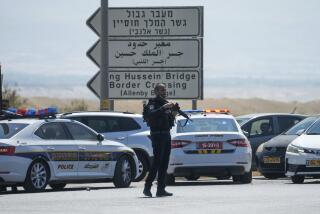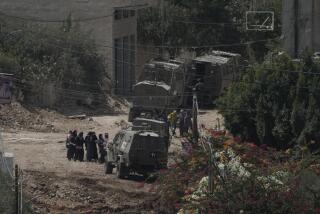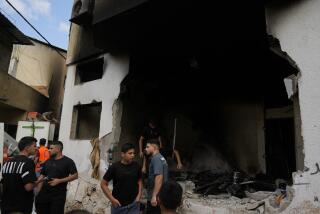New violence erupts in West Bank; Palestinian man killed

Fresh clashes erupted Tuesday in the West Bank, leaving at least one Palestinian demonstrator dead, as Palestinian Authority President Mahmoud Abbas accused Israel of fomenting a “destructive religious war” over a contested holy site.
Israelis, meanwhile, buried their dead from a pair of stabbing attacks that killed a soldier and a female Jewish settler a day earlier, generating a groundswell of fear over opportunistic strikes by lone Palestinian assailants.
With commentators debating whether the country is teetering on the brink of a large-scale Palestinian uprising, the government of Israeli Prime Minister Benjamin Netanyahu redeployed hundreds of troops to the West Bank and pledged tough measures to quell a rising wave of violence.
Those included plans to demolish the family homes of Palestinian attackers, resuming a practice that had been largely discontinued in recent years after intense criticism from human rights groups and the international community.
Tension has flared in recent months in Jerusalem, fueled by Palestinian anger over the summer war in the Gaza Strip between Israel and the militant group Hamas, coupled with grievances over growing Jewish encroachment into traditionally Arab areas of the city.
Underpinning that is a deep-seated Palestinian fear that Jewish ultranationalists are trying to overturn a nearly half-century-old accord that prohibits Jewish prayers on a sacred plateau in Jerusalem’s Old City.
Abbas, in a speech in the West Bank city of Ramallah commemorating the 10th anniversary of the death of Palestinian leader Yasser Arafat, unleashed some of his most fiery rhetoric yet in warning Israel against any change in the status of the site known to Muslims as the Noble Sanctuary. Jews know it as the Temple Mount, where their ancient temples once stood.
“Israel makes a grave mistake if it thinks it can take history backward, or that it can create a … divided Al Aqsa mosque,” said Abbas, referring to the area of the site most revered by Muslims. “We will safeguard and protect our holy places.”
Netanyahu has said there are no plans to change the long-standing prohibition on Jewish prayers on the mount, but some right-wing members of his government are seeking to contravene the ban, and the issue has been cited in several recent attacks.
One of the suspects in Monday’s separate stabbing episodes was from the West Bank town of Hebron, and confrontations broke out Tuesday between Israeli forces and Palestinians in the nearby Arroub refugee camp.
A 21-year-old Palestinian man, said by the Israeli military to have aimed a makeshift pistol at troops, was shot in the chest and later died, Palestinian hospital officials said. At another clash, outside the town of Ramallah, rioters hurled stones and firebombs at Israeli troops.
Meanwhile, mourners converged on the settlement of Tekoa in the West Bank for the funeral of one of the stabbing victims, a young woman who was waiting at a bus stop outside a settlement block when a Palestinian man attacked her and others waiting there. Amid emotional farewells to Dalia Lemkus, 26, the speaker of the parliament, Yuli Edelstein, vowed that West Bank settlements would be expanded, not scaled back.
The second victim, 20-year-old Almog Shilony, was buried with military honors at Israel’s national cemetery at Mt. Herzl, with 1,000 people in attendance. The soldier’s twin brother, Sahar, delivered a eulogy, telling the mourners that his heart was “broken in half.”
Shilony, a sergeant who was posthumously promoted to staff sergeant, died after a Palestinian man stabbed him outside a busy train station in Tel Aviv, the country’s commercial and cultural capital. It was the first attack of its kind this year in the coastal city, and it spread fear among Israelis that disturbances in Jerusalem were spreading to other parts of the country.
In the last month, Jerusalem has been the scene of two attacks in which Palestinian drivers rammed into passengers waiting at tram stops — killing four people — and the attempted assassination of a prominent activist seeking a greater Jewish claim to the sacred plateau above the Western Wall.
Even before this week’s attacks in Tel Aviv and the West Bank, a growing national debate had centered on whether the violence marks the start of a new intifada, a concerted Palestinian effort to shake off Israeli rule.
“I don’t know how to call it, but we must deal with it,” former national security advisor Yaakov Amidror told reporters Tuesday. He said the current spate of attacks is much less far-reaching than the Palestinian uprisings of the 1990s and early 2000s, but acknowledged that it was extremely difficult to prevent attacks by individuals acting independently.
In Tel Aviv, pensioner Amos Cohen said he, like others, had become more vigilant when in public, as during earlier years of conflict, when suicide attacks and bus bombings were commonplace.
“There’s no need to get hysterical, but I’m concerned,” he said. “You look around carefully now — it’s like an instinct awakened again.”
Twitter: @laurakingLAT
Sobelman is a special correspondent. Special correspondent Maher Abukhater in Ramallah, West Bank, contributed to this report.
More to Read
Sign up for Essential California
The most important California stories and recommendations in your inbox every morning.
You may occasionally receive promotional content from the Los Angeles Times.










